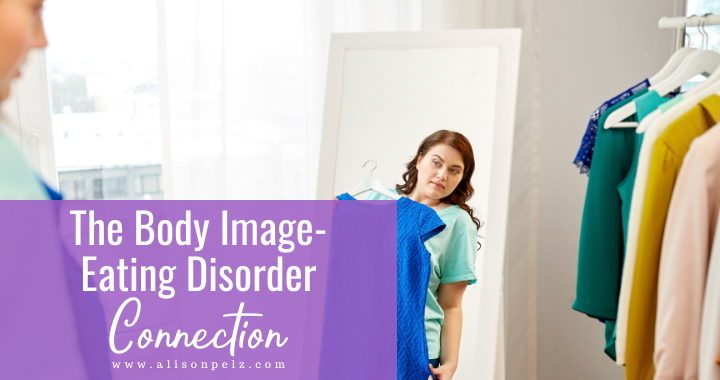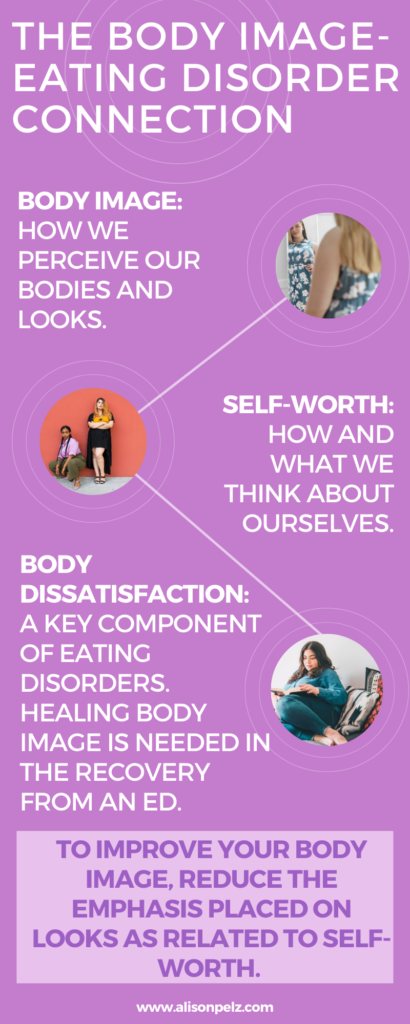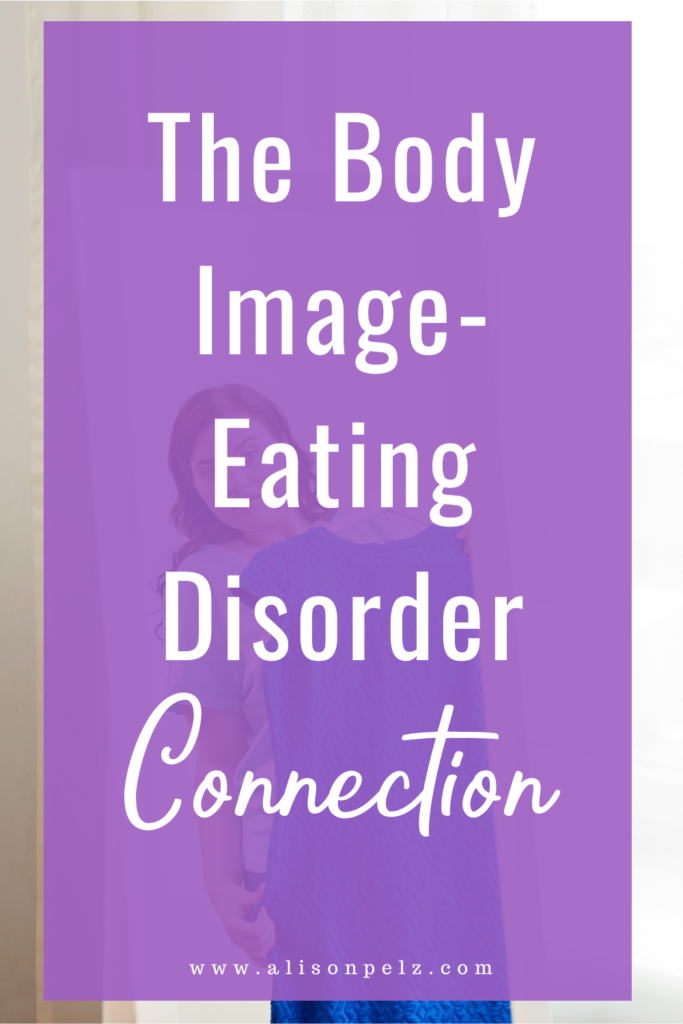What is body image?
Body image is how we perceive our bodies and looks. In other words, it is what we say to ourselves or our thoughts about our body. Having body dissatisfaction or a negative body image means that the majority of thoughts about one’s body are negative.
For example, while looking in the mirror, Sarah says to herself, “I am so ugly.” which then produces possible feelings of shame and sadness. However, Sarah doesn’t, get feedback from others that she is “ugly.”. In fact, she often gets comments from friends and co-workers that she looks nice.
When Anna looks in the mirror, she often says to herself, “My thighs are gross,” again leading to feelings of sadness and shame. In contrast, Alicia looks in the mirror and thinks “I am looking good today,” which may lead to feelings of happiness.
How we perceive our bodies is influenced by many factors, including family, friends, media, gender identity, culture, and the health-care system, to name a few. Body image is not static. It may change depending on our mood, situation, stage of life, or the season.
The body image-eating disorder connection
The majority of those who suffer with eating disorders have a negative body image. One of the key features of eating disorders is the overvaluation of weight, shape, and eating habits on self-worth.
Self-worth is how and what we think about ourselves. In other words, those who struggle with eating disorders equate much of their self-worth with their ability to control their weight, shape, and eating habits. Having a negative body image often keeps the eating disorder going.
Sarah from the example above, is able to identify that she has lots of good things going on in her life, including a strong friend group, a new job that allows her to be financially independent, her volunteer work, and close ties to her family. However, she places much of her self-worth on how she looks. She insists that her other qualities “don’t count”.
Think of self-worth in terms of a pie chart made up of several different categories. Sarah’s self-worth pie chart looks like this:

As you can see, Sarah places a lot of her self-worth on her ability to control her body and eating. When the majority of self-worth is tied to the pursuit of eating “correctly” and maintaining a certain weight and shape, other things that make us feel worthy are ignored. Furthermore, when we can’t control our looks or food in the way that we think we “ought” to, feelings of failure sink self-worth even lower.
Often in the pursuit of improving body satisfaction, we try to change the way our body looks with diet, exercise, and surgery. However, this often comes with lots of distress. One of the most impactful ways to improve your body image is to not actually change your body, but to reduce the emphasis placed on looks as related to self-worth.
After Sarah recovered from her eating disorder, including improving her body image, her self-worth pie chart looked more like this:

You can see that body shape/weight decreased in influence on self-worth. Other categories increased as Sarah was able to experience more joy in those areas and even learned that creativity and spirituality were additional sources of joy for her.
Body dissatisfaction is a key component of eating disorders. Healing your body image is needed in the recovery from an eating disorder.
Body image is often one of the hardest parts of an eating disorder to heal, but it is possible. Remember that to heal your body image, you don’t need to change your body, but rather your thoughts about your body.
If you think you have an eating disorder which often includes a negative body image it is crucial that you get professional help. To learn more about treatment please click here.


